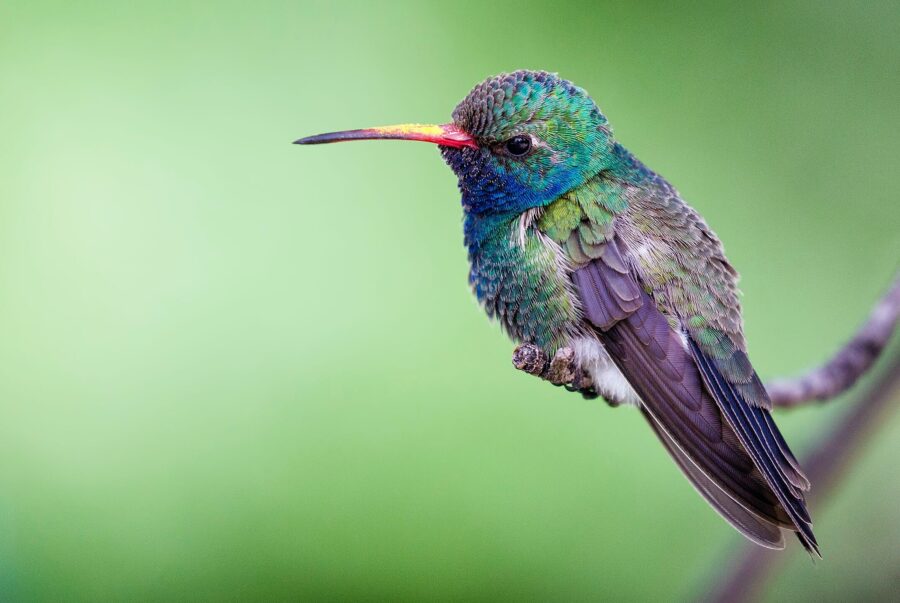Why Listening to Birds Boosts Mental Health
All that talk about nature’s benefits isn’t for the birds. A host of research has shown that spending time in nature is profoundly good for your mental and physical health. Not only that, but new studies show that looking at and listening to birds themselves could be good for our mental well-being, according to The Washington Post.
There’s something about being around birds that is profoundly good for human beings, as they connect us to the natural world, say two new studies published in Scientific Reports. “The special thing about birdsongs is that even if people live in very urban environments and do not have a lot of contact with nature, they link the songs of birds to vital and intact natural environments,” said Emil Stobbe, an environmental neuroscience grad student at the Max Planck Institute for Human Development and author of one of the studies.
Studies suggest that listening to birdsong, even through headphones, wards off negative emotions.
The link between birds and better mental health
Interacting with birds is associated with better mental health.
In one study, 1,300 participants were asked to track their environment and mental well-being three times a day using an app called Urban Mind.
Researchers found “a significant positive association between seeing or hearing birds and improved mental well-being,” separate from being around greenery or water, which have their own associations with better mental health.
Not only that, but if participants encountered a bird during the day, their positive outlook lasted for hours. It’s a “time-lasting link,” said Ryan Hammoud, a PhD candidate at the Institute of Psychiatry, Psychology & Neuroscience at King’s College London and an author of the study. “People with depression do show positive effects toward birdsong and birdlife in the area,” he noted, although birds appeared to benefit healthy participants as well.
Listening to birdsong alleviates anxiety and paranoia
A second study showed that when healthy participants listened to short (6-minute) audio clips of birdsong, they had decreased feelings of anxiety, depression, and paranoia.
Although being out in nature is healing in itself, “Listening to birdsong through headphones was able to hit the same pathways that might be beneficial toward mental well-being,” said Hammoud, who was not involved in the second study. “That’s a very, very nice finding.”
In the second study, 295 online participants were randomly assigned to listened to either traffic noise or birdsong. The subjects then noted their emotional and cognitive states after the exercise.
Traffic noise increased depression symptoms among participants. Those who listened to birdsong reported positive changes, and the more diverse the birdsong recordings, the more positive the effects. Participants who listened to two kinds of birds reported decreases in feelings of anxiety and paranoia, while those who listened to diverse recordings of eight species of birds reported decreased depression symptoms as well.
The research shows the “healing aspects of nature, or also the not-so-positive effects of urban surroundings,” said Stobbe, who co-authored the second study.
Why do nature and birds benefit us?
Birds are a link between ourselves and nature, said Stobbe, and the more we feel connected to nature, the better we feel.
But why? One hypothesis, the attention restoration theory, argues that “being in nature is good for improving concentration and decreasing the mental fatigue associated with living in stressful urban environments.” The sounds of the natural world, like birdsong, may enable us to engage in “soft fascination,” which simultaneously holds our attention and allows it to replenish.
Being outside in nature — and listening to birdsong — both reduce stress. Prior research discovered that spending time in green spaces outdoors can lower blood pressure and cortisol levels, Hammoud said.
Nature — and birdsong — also reduce stress. Previous research has found that time spent in green outdoor spaces can lower blood pressure and cortisol levels, Hammoud explained.
When people took walks in nature as opposed to an urban environment, they reported less rumination, which is linked to a risk of depression, neuroimaging studies have shown. And spending time outdoors encourages physical activity, which offers a host of physical and mental health benefits.
Going out to see birds also tends to encourage more physical activity, which has its own panoply of mental health benefits, and exercising outdoors may, in turn, magnify the health benefits of exercise.
Being aware and present to the birds around you boosts their beneficial effects. A new preliminary study found that birdwatchers who paid attention to the joy they felt for each bird experienced a greater mental health boost than those who merely counted the birds they saw.
So step outside. Be attentive. Listen to the birds. In no time, you may be feeling “happy as a lark.”
Read the full article in The Washington Post and listen to birdsong here.
Check out Smartphone applications like Merlin Bird ID and BirdNet that help you identify birds by their bird call.
The app eBird also helps identify the bird you are seeing from its size, colors, and location.
Sima, Richard. “Why birds and their songs are good for our mental health.” The Washington Post, 18 May 2023, https://www.washingtonpost.com/wellness/interactive/2023/birds-song-nature-mental-health-benefits/?itid=sr_10.
Photo by Philip Brown on Unsplash



